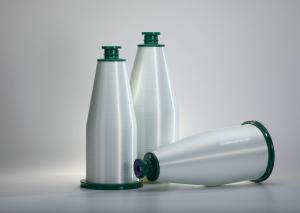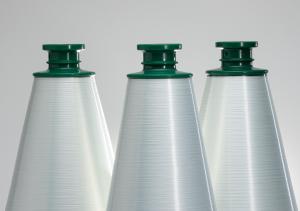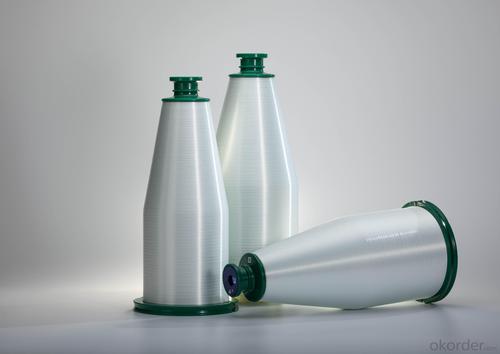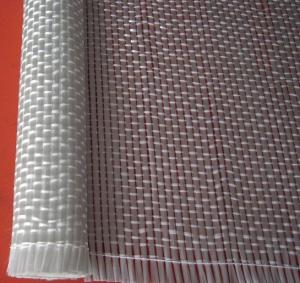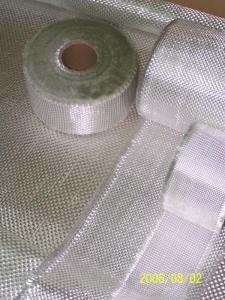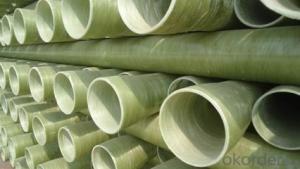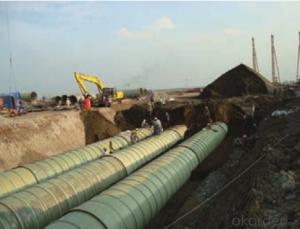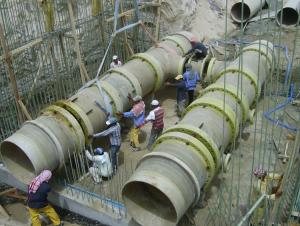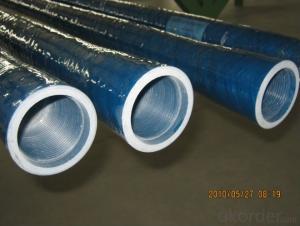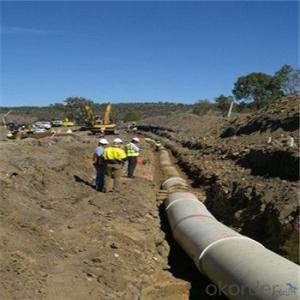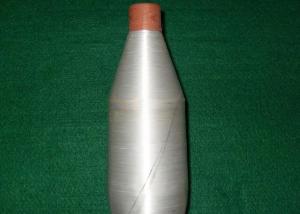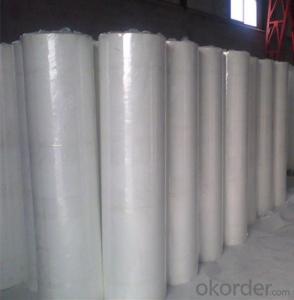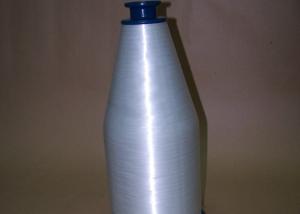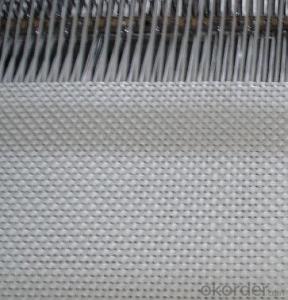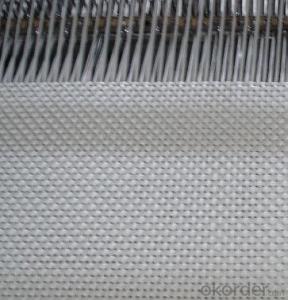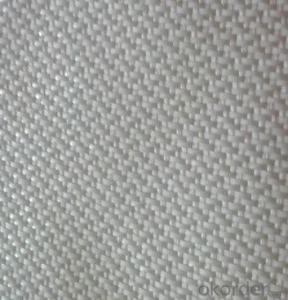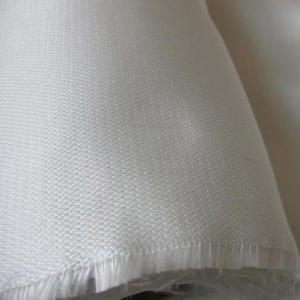Continuous Glass Fiber Yarns Single Fiber Daimeter of 9 Microns and Below
- Loading Port:
- Shanghai
- Payment Terms:
- TT or LC
- Min Order Qty:
- 1000 kg
- Supply Capability:
- 1000000 kg/month
OKorder Service Pledge
OKorder Financial Service
You Might Also Like
Product Description:
Yarn products mainly refer to continuous glass fiber yarns with a single fiber diameter of 9 microns and below.
According to the use, it can be divided into electronic grade fine yarn and industrial grade fine yarn, and according to the type of sizing, it can be divided into starch type and enhanced type.
The diameter of continuous glass fiber yarn is mainly 5-9 microns, the surface of the yarn is coated with a special sizing, which has a good protection effect on glass fiber bunching, less hairiness during deweaving, excellent textile performance, the sizing is easy to desize after the yarn is finished weaving, the decomposition temperature is low, the final ash residual is low, and the fabric is white and flat after desizing. Electronic grade yarn is the basic material used to produce electrically insulating glass fiber series products, and is an indispensable and irreplaceable high-quality structural material for copper clad laminates and printed circuit boards.
Product Features:
-High strength
-Less hairiness
-Good compatibility with resins such as epoxy and unsaturated polyester.
Packing:
with cartons
Storage:
In the absence of special requirements, it should be stored in a dry and ventilated room to prevent moisture. It is recommended to maintain the indoor temperature balance, and the optimal storage temperature is 15 °C ~ 35 °C. This product is best used within 12 months and should be kept in its original packaging before use. To ensure safety and avoid damage to the product, the stacking height of the pallet should not exceed two layers; When stacked two stories high, it is required to move the pallet on it correctly and smoothly.
- Q: Can fiberglass yarn be used for making furniture?
- Indeed, furniture making can involve the utilization of fiberglass yarn. Renowned for its robustness, endurance, and resistance to deterioration, fiberglass yarn proves to be an exceptional option for the manufacturing of furniture. Whether employed for weaving or as a foundational substance in upholstery and padding, this material bestows structural reinforcement and augments the lifespan of furniture. Furthermore, fiberglass yarn can be amalgamated with other substances like resin or foam, fostering the creation of one-of-a-kind and groundbreaking designs. Due to its adaptability and capacity to endure extensive usage, furniture makers commonly opt for fiberglass yarn.
- Q: Can fiberglass yarn be used for geotextile applications?
- Yes, fiberglass yarn can be used for geotextile applications. Geotextiles are permeable fabrics that are used in various civil engineering projects to improve soil stability, filtration, drainage, and separation. Fiberglass yarn is a strong and durable material that can withstand harsh environmental conditions, making it suitable for geotextile applications. It has excellent tensile strength and dimensional stability, which allows it to provide reinforcement and support to the soil. Additionally, fiberglass yarn is resistant to chemicals, moisture, and UV radiation, ensuring a long lifespan and high performance in geotextile applications. Therefore, fiberglass yarn is a viable option for geotextile applications due to its strength, durability, and resistance to environmental factors.
- Q: How does fiberglass yarn perform in terms of heat resistance?
- Fiberglass yarn possesses exceptional heat resistance qualities, making it an ideal choice when heat resistance is of utmost importance. Its strength and structural integrity remain intact even at high temperatures. This is attributed to the fact that the yarn is crafted from delicate glass fibers with a high melting point and low thermal conductivity. As a result, the fiberglass yarn effectively resists heat transfer, ensuring that it does not suffer any damage or deformation when subjected to extreme temperatures. Moreover, the yarn retains its performance in both hot and cold environments, thereby serving as a versatile option for a wide range of industries. Ultimately, fiberglass yarn proves highly effective in terms of heat resistance, offering durability and reliability even under the harshest thermal conditions.
- Q: How does fiberglass yarn perform in corrosion resistance?
- Fiberglass yarn exhibits a high level of corrosion resistance. Its composition, comprising a substantial proportion of glass fibers, renders it naturally impervious to chemical degradation and rust. This attribute positions fiberglass yarn as an optimal selection for endeavors necessitating paramount corrosion resistance, like the fabrication of pipes, tanks, and assorted industrial machinery. Moreover, fiberglass yarn also showcases resistance against UV radiation, moisture, and extreme temperatures, thus reinforcing its capacity to counteract corrosion. Ultimately, fiberglass yarn emerges as a steadfast and long-lasting material, excelling in environments that pose corrosion-related apprehensions.
- Q: Can fiberglass yarn be used in the production of industrial fabrics?
- Yes, fiberglass yarn can be used in the production of industrial fabrics. Fiberglass yarn is known for its high strength and durability, making it suitable for various industrial applications. It is commonly used in the production of industrial fabrics such as filtration fabrics, insulation fabrics, and reinforcement fabrics. These fabrics are used in a wide range of industries including automotive, aerospace, construction, and energy. Fiberglass yarn provides excellent resistance to heat, chemicals, and abrasion, making it ideal for demanding industrial environments. Additionally, it offers good dimensional stability and has a low thermal conductivity, making it a reliable choice for industrial fabric production.
- Q: Is fiberglass yarn suitable for use in wind turbine components?
- Certainly, fiberglass yarn is an excellent choice for wind turbine components. With its lightweight and durable nature, it possesses remarkable strength-to-weight ratio properties, making it highly suitable for various applications in wind turbine manufacturing. By employing fiberglass yarn, composite materials used in wind turbine blades, nacelles, and other components can be reinforced effectively. This reinforcement enhances structural integrity, impact resistance, and dimensional stability, ensuring the long-lasting and reliable performance of wind turbines. Moreover, fiberglass yarn is resistant to corrosion, a crucial feature for wind turbines that must endure harsh weather conditions. Its high tensile strength and flexibility enable efficient manufacturing processes and easy installation. Furthermore, fiberglass is a cost-effective material, making it a favored option for wind turbine manufacturers worldwide. In conclusion, fiberglass yarn is extensively utilized in wind turbine components, contributing to the efficient and sustainable generation of renewable energy.
- Q: Can fiberglass yarn be used in the production of electrical tapes?
- Yes, fiberglass yarn can be used in the production of electrical tapes. Fiberglass yarn is known for its high thermal resistance and electrical insulation properties, making it suitable for applications in the electrical industry. When incorporated into electrical tapes, fiberglass yarn helps provide reinforcement, strength, and durability to the tape, making it resistant to high temperatures, electrical currents, and mechanical stress. Additionally, fiberglass yarn helps improve the dielectric properties of the tape, enhancing its electrical insulation capabilities. Therefore, fiberglass yarn is a commonly used material in the production of electrical tapes.
- Q: Is fiberglass yarn suitable for use in aerospace structures?
- Yes, fiberglass yarn is suitable for use in aerospace structures. It is lightweight, strong, and resistant to heat and corrosion, making it an ideal material for various applications in the aerospace industry.
- Q: Can fiberglass yarn be used for pipe insulation?
- Yes, fiberglass yarn can be used for pipe insulation. Fiberglass yarn is a versatile material that is commonly used in various applications, including insulation. It has excellent thermal insulation properties, which make it an ideal choice for pipe insulation. Fiberglass yarn is able to withstand high temperatures and effectively prevent heat loss or gain in pipes, helping to improve energy efficiency. Additionally, fiberglass yarn is non-combustible, resistant to moisture, and has good acoustic insulation properties, making it suitable for both residential and industrial pipe insulation needs.
- Q: Can fiberglass yarn be used in the production of filtration media?
- Yes, fiberglass yarn can be used in the production of filtration media. It is commonly used for its durability, strength, and resistance to chemicals and high temperatures, making it an ideal choice for filtration applications.
Send your message to us
Continuous Glass Fiber Yarns Single Fiber Daimeter of 9 Microns and Below
- Loading Port:
- Shanghai
- Payment Terms:
- TT or LC
- Min Order Qty:
- 1000 kg
- Supply Capability:
- 1000000 kg/month
OKorder Service Pledge
OKorder Financial Service
Similar products
Hot products
Hot Searches
